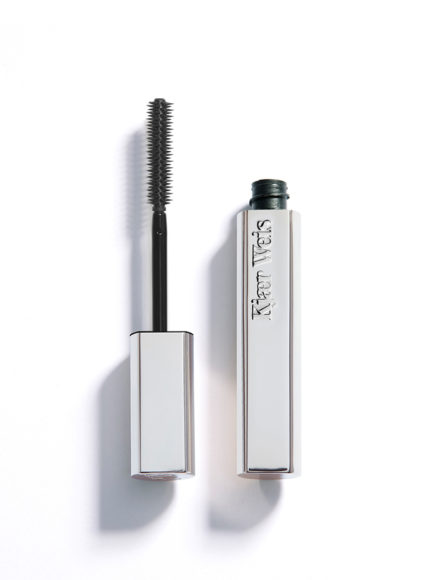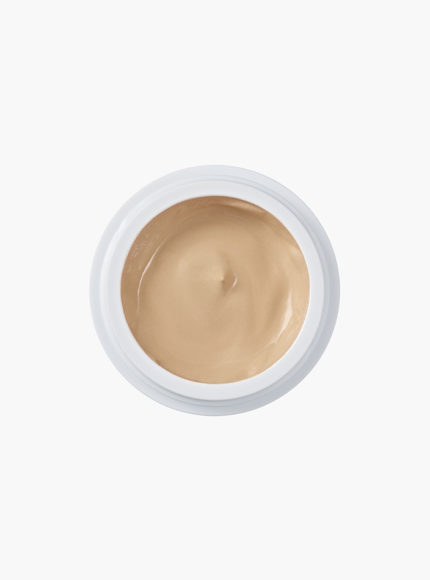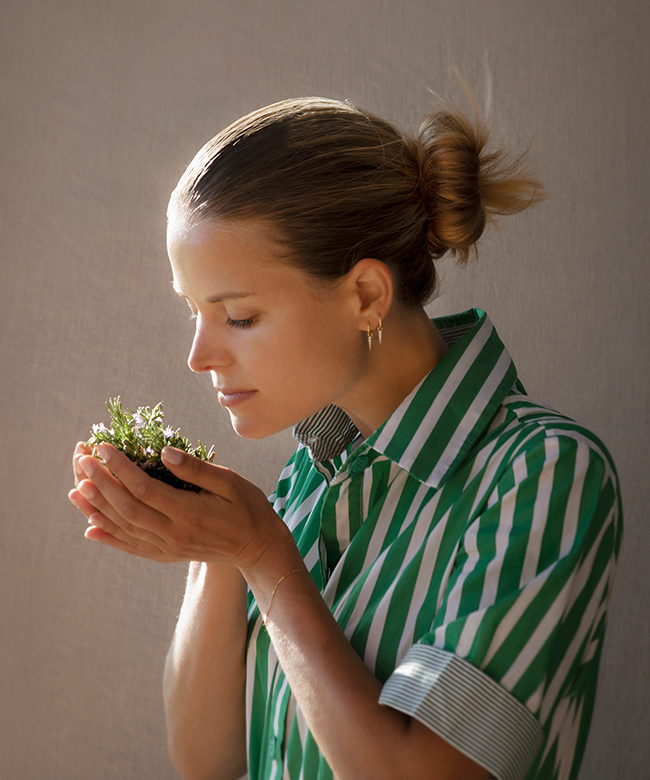Organic makeup by Manasi7
Beauty
The Ugly Truth Of Silicone Ingredients In Makeup
Holistic makeup artist Sjaniël Turrell gives us an overview of silicone’s role in makeup ingredients and why it might not be such a favorable ingredient for your skin or the planet.
What exactly is silicone?
Silicone is a man-made polymer. It acts like plastic, but its chemical structure is different. Silicon comes from silica, which is found in sand. It rarely appears alone in nature. To get it, a complex synthetic process is needed. This process uses hydrocarbons from fossil fuels, such as petroleum and natural gas. Silicone is a man-made material. It is inorganic and does not break down easily.
Why are silicone ingredients used in our makeup and beauty products?
There are two main types of silicone ingredients in makeup and cosmetics: dimethicone and cyclomethicone. Dimethicone is used in lower doses for a few reasons. First, it helps prevent white residues from your products due to its anti-foaming properties. Second, at higher doses, it repels water, making products waterproof. Lastly, it has a smooth, slippery texture. Its thickness varies depending on its chemical structure. Cyclomethicone can evaporate, unlike dimethicone. This gives a smooth, silky feel on the skin. Silicones have a natural shine. This creates a nice effect for many cosmetics. Silicone appears in many beauty items. You can find it in hair conditioner, moisturizers, lipstick, foundations, and concealers. It creates a slick film, making it a great choice for smooth makeup application. Today, most primers, concealers, and satin-matte lipsticks primarily contain different types of silicones.
What is the problem with silicone?
Silicone ingredients in makeup do not allow the skin to breathe or excrete
Scientifically, it may not seem like much. It’s an inert, nonreactive, and non-toxic substance. However, it plays a big role in many medical advancements and inventions. But, and there is a but, besides the fact that it is completely synthetic, it is an occlusive substance. This means that it acts as a barrier over the skin and does not allow anything to pass through it. It does not allow the skin to breathe or excrete. This may not harm everyone or cause serious health issues. However, many beauty products today contain silicone, and most women and men use them daily.
The regulation in the makeup industry is lacking
When it comes to makeup, think about how you apply your foundation, concealer, eyeshadow, mascara, and lipstick or lip gloss. Each product touches nearly every part of your face. Add to that the amounts that are found in your skincare routine and you end up with a pretty pile of ‘plastic’ on your face every day. Silicone has various grades and qualities. The cosmetic industry is not as well regulated as the medical field. Medical grade silicone is different from the silicone in your lipstick. Big companies often choose the cheapest ingredients to keep their products profitable.
We ingest silicone on a daily basis
There is a lack long-term safety studies on silicone in makeup and cosmetics. We ingest silicone daily from lipstick, and it also contacts sensitive areas like our eyes. Even the ‘medically acceptable’ silicone used in breast implants and fillers can harm our cells and organs. Topical particles don’t easily absorb into the skin. However, they can block oxygen and prevent sweat and impurities from escaping. This is especially true for acne-prone or combination skin, which can hurt long-term skin health.
And what about the environmental impact?
As eco and sustainability warriors, I wonder about the silicone residue we wash off daily in the bath or shower. Millions of us are sending this silicone down the drain and into the ocean. Silicone mainly repels water. This means it is a non-biodegradable substance just floating in water.
What about natural alternatives?
Natural and organic cosmetics are on the rise
Truth be told, there is no true natural alternative to silicone for cosmetics. That’s why I have great respect and admiration for the amazing formulators. They have truly advanced natural and organic cosmetics. Formulating a silky, smooth, long wearing makeup product without silicone is pretty damn difficult. The lengths that some brands have gone to with their research and formulating and reformulating is ground breaking. As a makeup artist, I’ve seen a big change in natural makeup over the last 5 years. It keeps evolving by using natural ingredients like waxes, oils, and powders. These help create the best non-silicone options available.
Know the ingredients
Eco brands vary in how natural and organic their ingredients are. Some may still include small amounts of dimethicone for anti-foaming or longer wear. This “point of compromise” is up to you. Decide if you prefer a clean ingredients list or better, longer-lasting makeup. In recent years, scientists have been working on natural alternatives to silicones. While these alternatives can’t fully match silicone’s properties, they do sink into your skin easily and feel light. So when you see these on your ingredients list, you know what they’re doing there… Isoamyl Laurate, Undecane, Tridecane, Coco-Caprylate, Prunus Armeniaca (Apricot) Kernel Oil, Coconut alkanes, Hydrogenated Ethylhexyl Olivate (and) Hydrogenated Olive Oil, Unsaponifiables, Heptyl, Undecylenate.
Why is natural makeup better?
Natural ingredients feed the skin rather than starve it
As natural beauty enthusiasts it’s better because it’s not synthetic, but it’s also better because it means your products aren’t made up of a majority inert, inactive substance that adds nothing to the health of your skin. Natural products are made up of nourishing oils and waxes that replicate the natural sebum of your skin and that gives it not only the chance to breathe and excrete but helps with it’s wellbeing and health. There is also growing evidence that our skin’s microbiome is as important to our overall health as our gut microbiome and natural ingredients will feed rather than starve our skin’s healthy bacteria. Listen to our podcast with the found of Kjaer Weis to learn more about this.
Natural ingredients create a healthy glow
Silicone based makeup is designed to ‘cover-up’, whereas natural makeup is designed to enhance – it is an extension of healthy skin and from my experience personally and as a makeup artist, natural products simply make the skin glow more and look healthier. Used alongside a natural/organic skincare routine as the base for good skin, you won’t want to go back to that feeling of a the ‘plastic layer’ sitting on your face. The most common comment I get from people who are new to natural beauty is that they cannot ‘feel’ the makeup sitting on their skin – it looks and feels fresh at the same time. Shop organic beauty here.
You can tailor your makeup to your skin type
If you are new to natural makeup then you will need to do some research before you simply go out and buy the first recommendation or review you read – speak to experts and test as many products as you can or book a product overhaul consultation with an organic makeup artist. Different oils and waxes behave differently on different skin types and you will need to find the one that works best for yours. Once you’ve found what works for you however, you will be converted to happier and healthier and certainly more sustainable, glowing skin. Check out our guide to finding the best organic makeup for your skin type
We also love Toups and Co Organics for natural makeup that really works – you can get 15% off your first order here with code REVEENVERT at checkout!






















